#oa.
Explore tagged Tumblr posts
Text
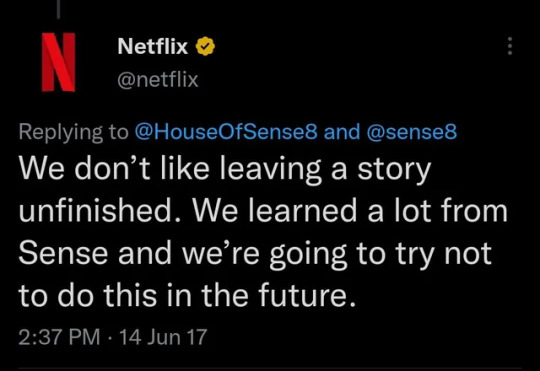
#netflix#streaming#i posted this#1899#sense8#i am not okay with this#inside job#santa clarita diet#the oa#the midnight gospel#anne with an e#julie and the phantoms#lockwood and co#dead boy detectives#shadow and bone#the society#glow#tuca and bertie#one day at a time#first kill#the get down#spinning out#hemlock grove#and more#i genuinely cant mention all#its so much#but at least they tried#right?
2K notes
·
View notes
Text
eldritch green lantern ideas:
ring slowly starts fusing with the finger it's on until one day the finger just glows, there's no more ring
bleeding green (duh)
so willful that reality tends to bend around them in small instances, like coffee always being warm or never having to wait for the elevator, or someone nearby tripping
the ring stops translating other languages because they just start understanding/speaking them eventually
the constructs chosen by Earth Lanterns stop looking like Earth items and more alien, older, ancient
Lanterns slowly forgetting to take off their uniforms and just start wearing them all the time
separating them from their ring will cause very, very bad things to happen
not eating or drinking for several days, then several weeks, then several months at a time without noticing
unintentionally feeding (mentally) off of strong-willed people, and even encouraging disagreement just to sit in the middle of it and feel something almost warm again
#add to this?#wow these got dark sorry#there were more people shared last time this was brought up#trying to remember them#green lantern#green lantern corps#hal jordan#dc#dc comics#gl#john stewart#guy gardner#kyle rayner#oa#eldritch
2K notes
·
View notes
Text

【先生と一緒に】38-「🛁💕」 by OA [Twitter/X] ※Illustration shared with permission from the artist. If you like this artwork please support the artist by visiting the source.
1K notes
·
View notes
Text
i know it's kinda mean of me but i hope seeing so many queer shows fall like dominoes is waking people up to the fact representation is vanishing fast. and there's a reason, more than any one studio or one showrunner.
#heartstopper hasn't been renewed yet btw#dead boy detectives#good omens#our flag means death#kaos#my lady jane#the oa#a league of their own#gentleman jack#first kill#paper girls#glow#wwdits#the owl house#heartstopper#heartbreak high#renegade nell
760 notes
·
View notes
Text

library achievement UNLOCKED ✅
#much respect my friend#y’all do lots of great work making research accessible!! love the OA content & free personal accounts#JSTOR
2K notes
·
View notes
Text
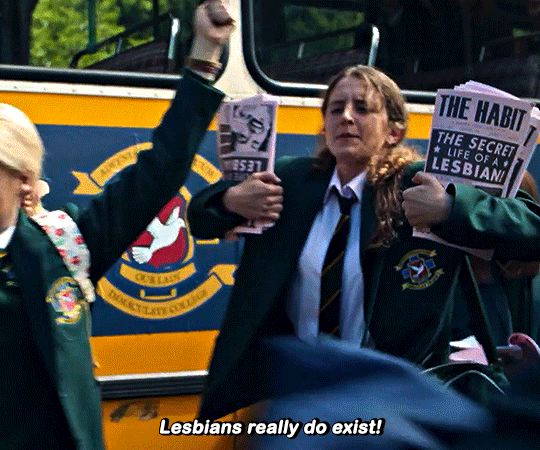
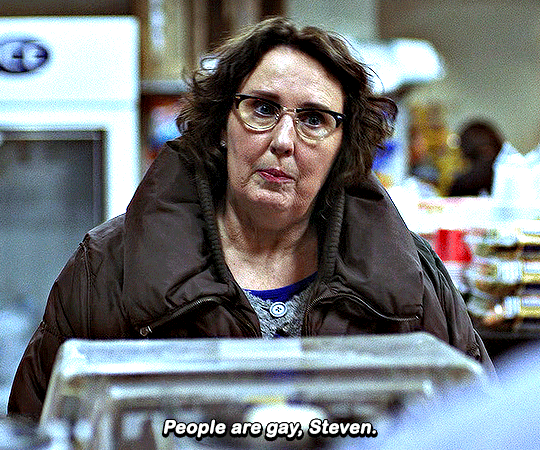
DERRY GIRLS (2018 - 2022) // THE OA (2016 - 2019)
#derry girls#derrygirlsgifs#derrygirlsedit#the oa#theoaedit#byaurore#usersugar#userbbelcher#tuserrachel#userallisyn#nessa007#tuserpris#userelio#usereena#tuserrobin#tusercora#userrlaura#userkam#userzil#userisaiah#the quality of derry girls is so bad it makes mezejcn
2K notes
·
View notes
Text



Sorry Vaggie, you're not allowed to destroy the innocence of Charlie's Beanie Babies today. smh
tagging @kambiteydragon out of habit at this point lol
#digital art#art by me#hazbin hotel#chaggie#vaggie#charlie morningstar#90s au#beanie babies#i was losing my shit the entire time I worked on this oa;dlfgjka;lfgalksjdfa
371 notes
·
View notes
Text
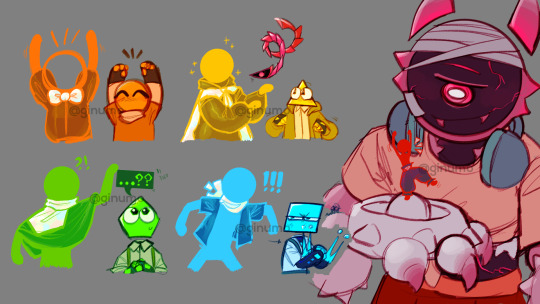

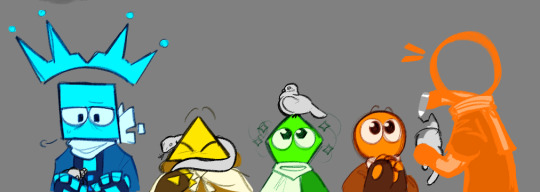
if i had a nickel,

thank you myth. very cool
#animator vs animation#ava#animation vs minecraft#avm#just shapes and beats#jsab#ava the second coming#ava tsc#avm the second coming#avm tsc#jsab circle#ava yellow#avm yellow#jsab triangle#ava green#avm green#jsab pentagon#ava blue#avm blue#jsab square#jsab cyan#ava red#avm red#jsab boss#jsab blixer#Valo - OAS#Ian - OAS#Tenpa - OAS#Adra - OAS#Havoc - OAS
866 notes
·
View notes
Text
Honestly at this point when Netflix cancels a show it’s an assurance of quality
#Netflix#1899#santa clarita diet#warrior nun#inside job#sense8#the oa#midnight club#tv#glow#altered carbon#mind hunter#the get down#first kill#lockwood netflix#lockwood and co#the society#i am not okay with this#midnight gospel#Disney
1K notes
·
View notes
Text
MIT libraries are thriving without Elsevier

I'm coming to BURNING MAN! On TUESDAY (Aug 27) at 1PM, I'm giving a talk called "DISENSHITTIFY OR DIE!" at PALENQUE NORTE (7&E). On WEDNESDAY (Aug 28) at NOON, I'm doing a "Talking Caterpillar" Q&A at LIMINAL LABS (830&C).

Once you learn about the "collective action problem," you start seeing it everywhere. Democrats – including elected officials – all wanted Biden to step down, but none of them wanted to be the first one to take a firm stand, so for months, his campaign limped on: a collective action problem.
Patent trolls use bullshit patents to shake down small businesses, demanding "license fees" that are high, but much lower than the cost of challenging the patent and getting it revoked. Collectively, it would be much cheaper for all the victims to band together and hire a fancy law firm to invalidate the patent, but individually, it makes sense for them all to pay. A collective action problem:
https://locusmag.com/2013/11/cory-doctorow-collective-action/
Musicians get royally screwed by Spotify. Collectively, it would make sense for all of them to boycott the platform, which would bring it to its knees and either make it pay more or put it out of business. Individually, any musician who pulls out of Spotify disappears from the horizon of most music fans, so they all hang in – a collective action problem:
https://pluralistic.net/2024/06/21/off-the-menu/#universally-loathed
Same goes for the businesses that get fucked out of 30% of their app revenues by Apple and Google's mobile business. Without all those apps, Apple and Google wouldn't have a business, but any single app that pulls out commits commercial suicide, so they all hang in there, paying a 30% vig:
https://pluralistic.net/2024/08/15/private-law/#thirty-percent-vig
That's also the case with Amazon sellers, who get rooked for 45-51 cents out of every dollar in platform junk fees, and whose prize for succeeding despite this is to have their product cloned by Amazon, which underprices them because it doesn't have to pay a 51% rake on every sale. Without third-party sellers there'd be no Amazon, but it's impossible to get millions of sellers to all pull out at once, so the Bezos crime family scoops up half of the ecommerce economy in bullshit fees:
https://pluralistic.net/2023/11/06/attention-rents/#consumer-welfare-queens
This is why one definition of "corruption" is a system with "concentrated gains and diffuse losses." The company that dumps toxic waste in your water supply reaps all the profits of externalizing its waste disposal costs. The people it poisons each bear a fraction of the cost of being poisoned. The environmental criminal has a fat warchest of ill-gotten gains to use to bribe officials and pay fancy lawyers to defend it in court. Its victims are each struggling with the health effects of the crimes, and even without that, they can't possibly match the polluter's resources. Eventually, the polluter spends enough money to convince the Supreme Court to overturn "Chevron deference" and makes it effectively impossible to win the right to clean water and air (or a planet that's not on fire):
https://www.cfr.org/expert-brief/us-supreme-courts-chevron-deference-ruling-will-disrupt-climate-policy
Any time you encounter a shitty, outrageous racket that's stable over long timescales, chances are you're looking at a collective action problem. Certainly, that's the underlying pathology that preserves the scholarly publishing scam, which is one of the most grotesque, wasteful, disgusting frauds in our modern world (and that's saying something, because the field is crowded with many contenders).
Here's how the scholarly publishing scam works: academics do original scholarly research, funded by a mix of private grants, public funding, funding from their universities and other institutions, and private funds. These academics write up their funding and send it to a scholarly journal, usually one that's owned by a small number of firms that formed a scholarly publishing cartel by buying all the smaller publishers in a string of anticompetitive acquisitions. Then, other scholars review the submission, for free. More unpaid scholars do the work of editing the paper. The paper's author is sent a non-negotiable contract that requires them to permanently assign their copyright to the journal, again, for free. Finally, the paper is published, and the institution that paid the researcher to do the original research has to pay again – sometimes tens of thousands of dollars per year! – for the journal in which it appears.
The academic publishing cartel insists that the millions it extracts from academic institutions and the billions it reaps in profit are all in service to serving as neutral, rigorous gatekeepers who ensure that only the best scholarship makes it into print. This is flatly untrue. The "editorial process" the academic publishers take credit for is virtually nonexistent: almost everything they publish is virtually unchanged from the final submission format. They're not even typesetting the paper:
https://link.springer.com/article/10.1007/s00799-018-0234-1
The vetting process for peer-review is a joke. Literally: an Australian academic managed to get his dog appointed to the editorial boards of seven journals:
https://www.atlasobscura.com/articles/olivia-doll-predatory-journals
Far from guarding scientific publishing from scams and nonsense, the major journal publishers have stood up entire divisions devoted to pay-to-publish junk science. Elsevier – the largest scholarly publisher – operated a business unit that offered to publish fake journals full of unreveiwed "advertorial" papers written by pharma companies, packaged to look like a real journal:
https://web.archive.org/web/20090504075453/http://blog.bioethics.net/2009/05/merck-makes-phony-peerreview-journal/
Naturally, academics and their institutions hate this system. Not only is it purely parasitic on their labor, it also serves as a massive brake on scholarly progress, by excluding independent researchers, academics at small institutions, and scholars living in the global south from accessing the work of their peers. The publishers enforce this exclusion without mercy or proportion. Take Diego Gomez, a Colombian Masters candidate who faced eight years in prison for accessing a single paywalled academic paper:
https://www.eff.org/deeplinks/2014/07/colombian-student-faces-prison-charges-sharing-academic-article-online
And of course, there's Aaron Swartz, the young activist and Harvard-affiliated computer scientist who was hounded to death after he accessed – but did not publish – papers from MIT's JSTOR library. Aaron had permission to access these papers, but JSTOR, MIT, and the prosecutors Stephen Heymann and Carmen Ortiz argued that because he used a small computer program to access the papers (rather than clicking on each link by hand) he had committed 13 felonies. They threatened him with more than 30 years in prison, and drew out the proceedings until Aaron was out of funds. Aaron hanged himself in 2013:
https://en.wikipedia.org/wiki/Aaron_Swartz
Academics know all this terrible stuff is going on, but they are trapped in a collective action problem. For an academic to advance in their field, they have to publish, and they have to get their work cited. Academics all try to publish in the big prestige journals – which also come with the highest price-tag for their institutions – because those are the journals other academics read, which means that getting published is top journal increases the likelihood that another academic will find and cite your work.
If academics could all agree to prioritize other journals for reading, then they could also prioritize other journals for submissions. If they could all prioritize other journals for submissions, they could all prioritize other journals for reading. Instead, they all hold one another hostage, through a wicked collective action problem that holds back science, starves their institutions of funding, and puts their colleagues at risk of imprisonment.
Despite this structural barrier, academics have fought tirelessly to escape the event horizon of scholarly publishing's monopoly black hole. They avidly supported "open access" publishers (most notably PLoS), and while these publishers carved out pockets for free-to-access, high quality work, the scholarly publishing cartel struck back with package deals that bundled their predatory "open access" journals in with their traditional journals. Academics had to pay twice for these journals: first, their institutions paid for the package that included them, then the scholars had to pay open access submission fees meant to cover the costs of editing, formatting, etc – all that stuff that basically doesn't exist.
Academics started putting "preprints" of their work on the web, and for a while, it looked like the big preprint archive sites could mount a credible challenge to the scholarly publishing cartel. So the cartel members bought the preprint sites, as when Elsevier bought out SSRN:
https://www.techdirt.com/2016/05/17/disappointing-elsevier-buys-open-access-academic-pre-publisher-ssrn/
Academics were elated in 2011, when Alexandra Elbakyan founded Sci-Hub, a shadow library that aims to make the entire corpus of scholarly work available without barrier, fear or favor:
https://sci-hub.ru/alexandra
Sci-Hub neutralized much of the collective action trap: once an article was available on Sci-Hub, it became much easier for other scholars to locate and cite, which reduced the case for paying for, or publishing in, the cartel's journals:
https://arxiv.org/pdf/2006.14979
The scholarly publishing cartel fought back viciously, suing Elbakyan and Sci-Hub for tens of millions of dollars. Elsevier targeted prepress sites like academia.edu with copyright threats, ordering them to remove scholarly papers that linked to Sci-Hub:
https://svpow.com/2013/12/06/elsevier-is-taking-down-papers-from-academia-edu/
This was extremely (if darkly) funny, because Elsevier's own publications are full of citations to Sci-Hub:
https://eve.gd/2019/08/03/elsevier-threatens-others-for-linking-to-sci-hub-but-does-it-itself/
Meanwhile, scholars kept the pressure up. Tens of thousands of scholars pledged to stop submitting their work to Elsevier:
http://thecostofknowledge.com/
Academics at the very tops of their fields publicly resigned from the editorial board of leading Elsevier journals, and published editorials calling the Elsevier model unethical:
https://www.theguardian.com/science/blog/2012/may/16/system-profit-access-research
And the New Scientist called the racket "indefensible," decrying the it as an industry that made restricting access to knowledge "more profitable than oil":
https://www.newscientist.com/article/mg24032052-900-time-to-break-academic-publishings-stranglehold-on-research/
But the real progress came when academics convinced their institutions, rather than one another, to do something about these predator publishers. First came funders, private and public, who announced that they would only fund open access work:
https://www.nature.com/articles/d41586-018-06178-7
Winning over major funders cleared the way for open access advocates worked both the supply-side and the buy-side. In 2019, the entire University of California system announced it would be cutting all of its Elsevier subscriptions:
https://www.science.org/content/article/university-california-boycotts-publishing-giant-elsevier-over-journal-costs-and-open
Emboldened by the UC system's principled action, MIT followed suit in 2020, announcing that it would no longer send $2m every year to Elsevier:
https://pluralistic.net/2020/06/12/digital-feudalism/#nerdfight
It's been four years since MIT's decision to boycott Elsevier, and things are going great. The open access consortium SPARC just published a stocktaking of MIT libraries without Elsevier:
https://sparcopen.org/our-work/big-deal-knowledge-base/unbundling-profiles/mit-libraries/
How are MIT's academics getting by without Elsevier in the stacks? Just fine. If someone at MIT needs access to an Elsevier paper, they can usually access it by asking the researchers to email it to them, or by downloading it from the researcher's site or a prepress archive. When that fails, there's interlibrary loan, whereby other libraries will send articles to MIT's libraries within a day or two. For more pressing needs, the library buys access to individual papers through an on-demand service.
This is how things were predicted to go. The libraries used their own circulation data and the webservice Unsub to figure out what they were likely to lose by dropping Elsevier – it wasn't much!
https://unsub.org/
The MIT story shows how to break a collective action problem – through collective action! Individual scholarly boycotts did little to hurt Elsevier. Large-scale organized boycotts raised awareness, but Elsevier trundled on. Sci-Hub scared the shit out of Elsevier and raised awareness even further, but Elsevier had untold millions to spend on a campaign of legal terror against Sci-Hub and Elbakyan. But all of that, combined with high-profile defections, made it impossible for the big institutions to ignore the issue, and the funders joined the fight. Once the funders were on-side, the academic institutions could be dragged into the fight, too.
Now, Elsevier – and the cartel – is in serious danger. Automated tools – like the Authors Alliance termination of transfer tool – lets academics get the copyright to their papers back from the big journals so they can make them open access:
https://pluralistic.net/2021/09/26/take-it-back/
Unimaginably vast indices of all scholarly publishing serve as important adjuncts to direct access shadow libraries like Sci-Hub:
https://pluralistic.net/2021/10/28/clintons-ghost/#cornucopia-concordance
Collective action problems are never easy to solve, but they're impossible to address through atomized, individual action. It's only when we act as a collective that we can defeat the corruption – the concentrated gains and diffuse losses – that allow greedy, unscrupulous corporations to steal from us, wreck our lives and even imprison us.

Community voting for SXSW is live! If you wanna hear RIDA QADRI and me talk about how GIG WORKERS can DISENSHITTIFY their jobs with INTEROPERABILITY, VOTE FOR THIS ONE!

If you'd like an essay-formatted version of this post to read or share, here's a link to it on pluralistic.net, my surveillance-free, ad-free, tracker-free blog:
https://pluralistic.net/2024/08/16/the-public-sphere/#not-the-elsevier
#pluralistic#libraries#glam#elsevier#monopolies#antitrust#scams#open access#scholarship#education#lis#oa#publishing#scholarly publishing#sci-hub#preprints#interlibrary loan#aaron swartz#aaronsw#collective action problems
626 notes
·
View notes
Text
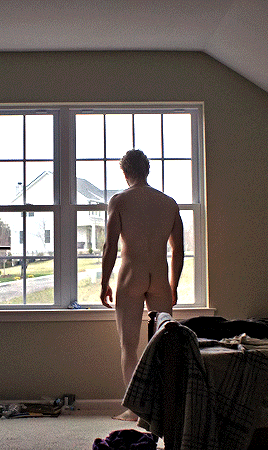

PATRICK GIBSON The OA 1.01 "Homecoming"
#patrick gibson#the oa#theoaedit#steve winchell#actor#men#menedit#guys#serie#tv#gifs#mine#*#patrickgibsonedit
2K notes
·
View notes
Text
Hal bent down as the little girl approached him. Even then, he still managed to tower over her with how small she was.
"Hey there little lady," he said. "Anything I can help you with this fine evening?"
The little girl looked at him anxiously, fiddling with her hands. Ok so not a nervous fan. Hal immediately switched to serious mode, scanning the crowd for anyone who could be her parents. He didn't see anyone running up to the two of them or even so much as keeping a watchful eye from a distance.
"Is something the matter?" Hal questioned, making sure to keep his voice even and calm.
The girl continued fidgeting, her big blue eyes scanning from side to side. Finally she spoke. "You wiff da space po-eece yes? Not da am-ear-ree-ca one?"
Hal smiled at the girl. "Yes, I'm with the space police." Honestly that was oversimplifying the Corps a little but he had long since gotten to citizens calling him a space cop.
The girl offered up a small nervous smile of her own. "So you won't tell da gov-ment what I tell you wight?"
Hal was on high alert now. Just what was this little girl trying to tell him? "I won't tell. I promise," he said after a second.
The girl broke into a big smile at this. "Really? Dis way den." She started tugging Hal along and he began to follow.
"Where exactly are we going?" he asked.
"You see," was all she replied.
Hal was led down a couple different alleyways and was beginning to think he was walking into a trap when they reached an abandoned building. The girl dashed in and up the old rusted stairs, with Hal following closely behind her.
If this really is a trap, I'll never hear the end of it from Batman, he thought morbidly as he cleared the last step. Instead of finding himself facing an ambush however, he saw a boy curled up on an old mattress. The girl was already by his side as Hal approached.
"Don wowee Danny, I got help. Like I said I would," he caught the little girl whispering as he knelt down next to the boy. He had to have been older than the girl. Three years older maybe? Yet he was still so small. Hal took sight of his condition. He was in pain. That much was certain by his little face scrunched up in agony and his quiet moans. He was also sweating profusely. His raven black hair sticking to his forehead. Fever maybe?
Hal continued his observations as he scanned down the boy's body until he got to his stomach. The boy was clutching it and Hal could make out blood bleeding through from underneath. Oh no.
He quickly yet carefully removed the boy's arm to get a better look at the wound. The kid let out a groan as his arm was peeled away. Hal couldn't help but thank Oa for all his training that helped prevent him from letting out a gasp.
The boy's chest was covered in blood. Dark red mixed with flecks of green soaked through his shirt and there were bandages that had been amateurishly tied around the wound.
"How did this happen?" Hal asked, turning back to the girl. He did his best to keep his tone as gentle as possible.
Her smile was gone now, and her eyes welled up with tears. "He pwotected me," she said. "Dey wanted to huwrt us. Dey shot at us. Danny pwotected me."
Anger boiled within Hal. Who would shoot at these children? They were only little kids. If what the girl had said earlier was anything to go off of, the answer had something to do with the government. He would have to take care of that later though. For now, this boy needed medical attention.
"Let's get Danny to a hospital," Hal said resolutely, as he got up.
"No!" the little girl screeched. "No has-pee-tail. Too dan-er-us!"
"But he needs-" Hal started but then he met the girl's eyes. There was abject fear in them. As if going to the hospital would be a death sentence for both children. Where else were they supposed to go though? The boy- Danny needed medical attention stat. That much was certain.
Hal paused. There was one place. He sighed. Batman was going to kill him for this.
"Okay okay. No hospital. But what about space?"
"Space?" the girl repeated.
Hal nodded.
The little girl smiled. "Danny lobes space!"
"Well then. That's perfect."
Hal constructed a new bed for the boy, carefully easing him onto it before putting a protective dome around both children. The little girl giggled as he lifted them up. He then turned to the wall where he created a giant hammer to knock it down. Then they were off. Flying higher and higher, towards the atmosphere. As the Watchtower got closer in sight, Hal couldn't help but groan. Taking civilians to the Watchtower? Oh yeah, Batman was definitely going to kill him.
#dp x dc#dc x dp#dcxdp#dpxdc#winter's tales#sorry if the baby speech is annoying#really wanted to emphasize that ellie is just a tiny tot is all#side note it was strange writing “thank oa”#because on one hand it's pretty much the equivalent of saying “thank earth”#but on the other hand i felt like a natural thing for him to say?#*it#though i guess there are some people who say “thank gaia”#which is just another name for earth#but that's probably in reference to the actual greek personification so....#idk#anyways i'm getting off into a random tangent#feel free to ignore this
3K notes
·
View notes
Text
psych wards are organised abuse but society isnt ready for that conversation
451 notes
·
View notes
Text

【先生と一緒に】41 by OA [Twitter/X] ※Illustration shared with permission from the artist. If you like this artwork please support the artist by visiting the source.
539 notes
·
View notes
